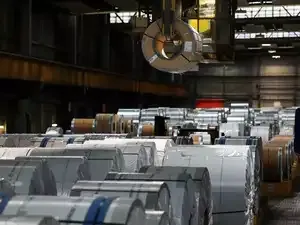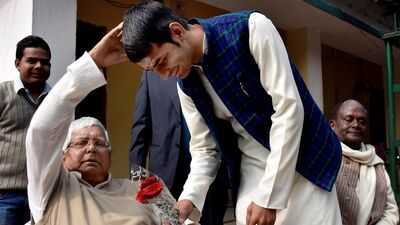
India’s steel market is moving rapidly from raw steel supply toward precision-engineered, value-added products. The country is leading the shift in customised cold rolled tubes and profiles with a 7.8% compound annual growth rate (CAGR), slightly above the global metal forming market’s 7.5% growth. The change is being driven by urbanisation, large construction projects, electric vehicle adoption, and renewable energy expansion.
Growing demand for customised steel
Industries across India are seeking more than basic steel. Manufacturers now prefer ready-to-assemble, precision-engineered components that help reduce costs, improve safety, and shorten production timelines.
“Industries today demand more than raw steel. They seek ready-to-assemble, precision-engineered components that guarantee safety, reduce costs, and shorten production timelines. India has the expertise and scale to deliver these value-added solutions globally,” said Santosh Venkatasubbaiah, Director, Sales & Marketing at Bengaluru-based Mother India Forming, which manufactures customised cold rolled tubes, profiles, and components.
Venkatasubbaiah added that the company’s production capabilities reflect how Indian manufacturers are investing in advanced processes to meet global standards. “At Mother India Forming, we operate two plants in Bangalore equipped with 15 roll-forming machines, CNC bending machines, robotic laser cutting, robotic welding, and a dedicated R&D centre,” he said. “A team of over 300 engineers, designers, and technicians ensures scalability, precision, and compliance with international standards.”
This reflects a wider industry trend toward value-added steel solutions capable of meeting sector-specific and export-driven requirements.
Integrated solutions across the industry
Indian steel manufacturers are increasingly offering end-to-end solutions covering design, simulation, roll-forming, welding, coating, and inspection. These integrated capabilities help overcome issues such as fragmented supply chains, inconsistent tolerances, and unpredictable delivery schedules.
Advanced production technologies like CNC bending, robotic welding, and automated inspection are now standard features in modern fabrication plants. These processes ensure high precision, scalability, and quality consistency, strengthening India’s position as a reliable global supplier.
Meeting sector-specific needs
Different sectors demand unique steel solutions:
Automotive and electric vehicles: Lightweight, high-precision, and cost-effective components.
Rail and metro: Fatigue-resistant coach frames and structural parts.
Renewable energy: Corrosion-proof, precisely aligned solar and wind structures.
Heavy machinery: Structurally strong components to prevent stress failures.
Textiles and office furniture: Consistent tubular profiles to avoid production downtime.
High-frequency welded tubes, robotic fabrication, corrosion protection, and digital traceability are increasingly being used to meet these diverse needs.
India’s value-added steel vision
“The shift toward customised steel aligns with Prime Minister Narendra Modi’s vision of moving beyond raw steel exports toward finished, high-value products,” said Venkatasubbaiah. “Precision-engineered steel components reduce import dependency and strengthen India’s role as a global supplier of advanced steel solutions. India is no longer just a steel supplier, it is shaping the future of steel forming worldwide.”
With global industries demanding scalable, reliable, and precise components, India is emerging as a hub for customised steel manufacturing. End-to-end capabilities, advanced technologies, and a skilled workforce are setting new standards in precision, quality, and international competitiveness.
Growing demand for customised steel
Industries across India are seeking more than basic steel. Manufacturers now prefer ready-to-assemble, precision-engineered components that help reduce costs, improve safety, and shorten production timelines.
“Industries today demand more than raw steel. They seek ready-to-assemble, precision-engineered components that guarantee safety, reduce costs, and shorten production timelines. India has the expertise and scale to deliver these value-added solutions globally,” said Santosh Venkatasubbaiah, Director, Sales & Marketing at Bengaluru-based Mother India Forming, which manufactures customised cold rolled tubes, profiles, and components.
Venkatasubbaiah added that the company’s production capabilities reflect how Indian manufacturers are investing in advanced processes to meet global standards. “At Mother India Forming, we operate two plants in Bangalore equipped with 15 roll-forming machines, CNC bending machines, robotic laser cutting, robotic welding, and a dedicated R&D centre,” he said. “A team of over 300 engineers, designers, and technicians ensures scalability, precision, and compliance with international standards.”
This reflects a wider industry trend toward value-added steel solutions capable of meeting sector-specific and export-driven requirements.
Integrated solutions across the industry
Indian steel manufacturers are increasingly offering end-to-end solutions covering design, simulation, roll-forming, welding, coating, and inspection. These integrated capabilities help overcome issues such as fragmented supply chains, inconsistent tolerances, and unpredictable delivery schedules.
Advanced production technologies like CNC bending, robotic welding, and automated inspection are now standard features in modern fabrication plants. These processes ensure high precision, scalability, and quality consistency, strengthening India’s position as a reliable global supplier.
Meeting sector-specific needs
Different sectors demand unique steel solutions:
Automotive and electric vehicles: Lightweight, high-precision, and cost-effective components.
Rail and metro: Fatigue-resistant coach frames and structural parts.
Renewable energy: Corrosion-proof, precisely aligned solar and wind structures.
Heavy machinery: Structurally strong components to prevent stress failures.
Textiles and office furniture: Consistent tubular profiles to avoid production downtime.
High-frequency welded tubes, robotic fabrication, corrosion protection, and digital traceability are increasingly being used to meet these diverse needs.
India’s value-added steel vision
“The shift toward customised steel aligns with Prime Minister Narendra Modi’s vision of moving beyond raw steel exports toward finished, high-value products,” said Venkatasubbaiah. “Precision-engineered steel components reduce import dependency and strengthen India’s role as a global supplier of advanced steel solutions. India is no longer just a steel supplier, it is shaping the future of steel forming worldwide.”
With global industries demanding scalable, reliable, and precise components, India is emerging as a hub for customised steel manufacturing. End-to-end capabilities, advanced technologies, and a skilled workforce are setting new standards in precision, quality, and international competitiveness.





